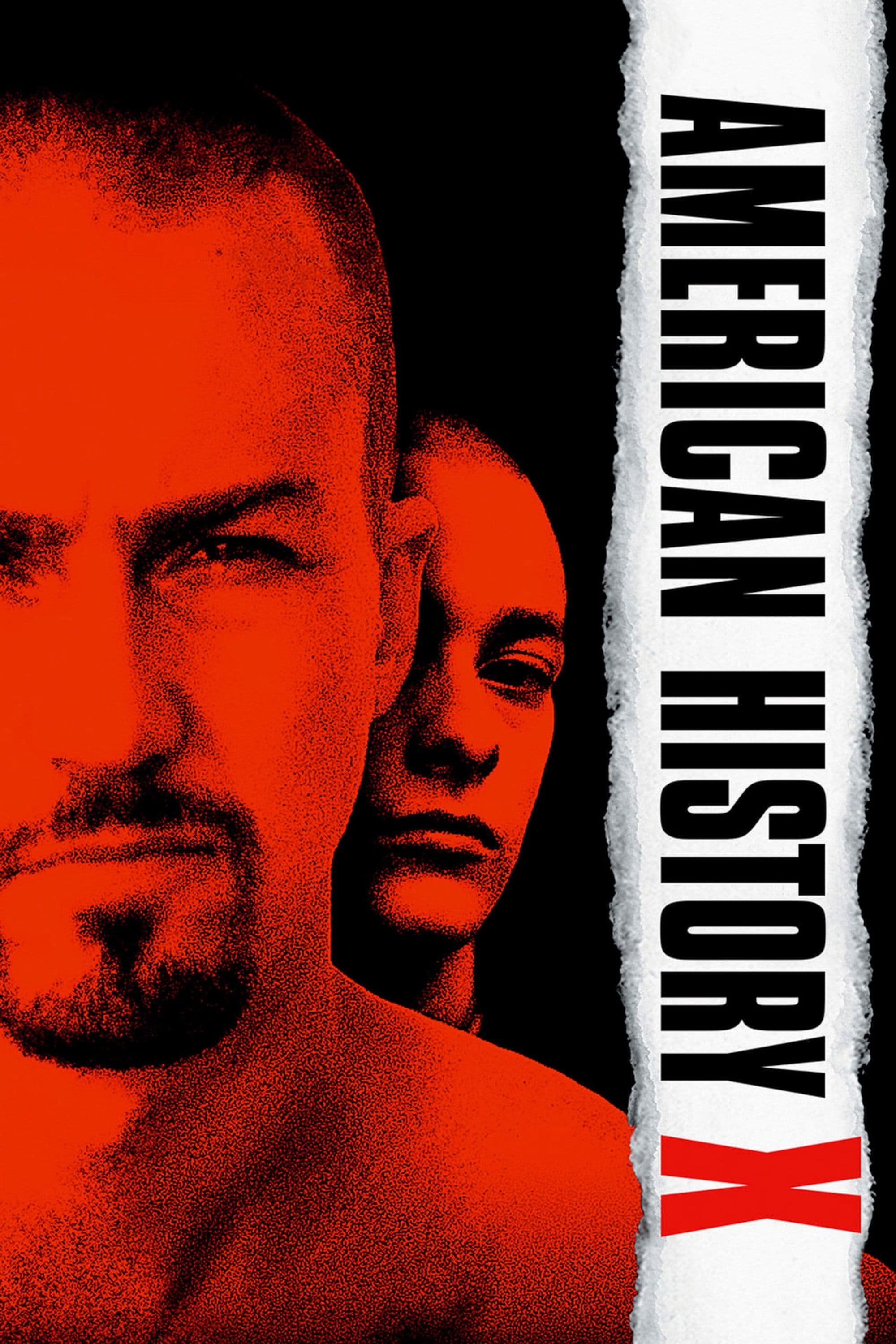
American History X
1998
Rate this movie
Average: 0.00 / 5
(0 votes)
Director
Derek, a charismatic yet disturbing figure, is a skinhead whose life takes an abrupt turn when, in an act of brutal violence, he kills two Black youths caught stealing his car. The atrocity of the act, immortalized in a chilling sequence that would become the film's very icon, is not merely the consequence of a theft, but the explosion of cultivated hatred, rooted in a distorted worldview and a sense of personal injustice, sublimated into a struggle for white supremacy. That fatal stomp on the asphalt is not just a murder, but the crystallization of a perverse ideology that permeates every fiber of his being and that of his environment.
Prison, instead of confirming his dogmas, becomes for Derek a crucible of reflection and, unexpectedly, of redemption. There, in an environment seemingly most hostile to change, he undergoes a radical reversal of his way of thinking, distancing himself from the neo-Nazi ideas of the Skin88 group, of which he was a fervent adherent. This group, more than a mere association, takes shape as a true xenophobic cult, deftly manipulated by Cameron Alexander, a publisher whose perverse intellect serves a racist ideology of white supremacy. Derek's journey in prison is neither linear nor painless; it is an odyssey of disillusionment and recognition, facilitated by key encounters, such as with Lamont, an African American inmate, and especially with Dr. Sweeney, his former teacher, whose figure stands as a bulwark of unwavering morality and an education capable of piercing the veil of ignorance. His transformation is a profound interrogation of evil, individual responsibility, and the possibility of authentic redemption, not only moral but also intellectual.
Meanwhile, on the outside, the apple does not fall far from the tree. Daniel, Derek's younger brother, orphaned of his father figure and imbued with the same far-right ideology as his older brother, revered as a martyr, sinks ever deeper into the abyss of hatred. His school paper on Hitler's Mein Kampf is not just an adolescent provocation, but the dramatic symptom of early indoctrination, eliciting the horror and despair of teachers, powerless in the face of such blindness. The narrative, with an elegant stylistic choice that contributes to weaving the complex psychology of the characters, moves on two distinct temporal planes, emphasized by the use of black and white for the flashbacks that recount the violent past and the genesis of hatred, and color for the present, symbolizing the hope of change and the search for a new path.
Once released, Derek finds himself catapulted into a reality that is both familiar and alien. The shadow of his past inexorably lengthens, embodied by Alexander and his clique, who expect the same fanatic commitment from him as before. But Derek has one desperate purpose: to stake his very life in an attempt to snatch Daniel, whose fate appears tragically sealed, from the clutches of the group. Daniel is thus involved in violent raids and acts of vandalism, spurred on by other blinded militants, while Derek is engaged in a race against time to protect him and, ultimately, save him from that abomination.
Tony Kaye's work, despite production turbulence and the epic clash between the director and an Edward Norton determined to protect his own vision of the character, fiercely questions: who are the real tormentors? And what destiny awaits to unfold in the shadow of blind and perverse ideologies? American History X analyzes with lucid determination the teeming underground of racist and xenophobic groups in the United States of racial integration, attempting a sociological explanation. It is not only charismatic leaders who shape the minds of young people, but also social frustrations, a sense of alienation, and the search for identity in a social fabric that appears fragmented and lacking points of reference. The film suggests that hatred does not arise in a vacuum, but is the product of fertile ground made up of inequalities, irrational fears, and manipulative rhetoric that promises easy answers to complex problems.
The racist ideals that permeate these young people, thrown into disarray by cynical leaders, are not at all the result of a deeply rooted conviction, but rather a base instrument of mind control. The hidden purpose is to keep a certain group of people united through the fear of diversity, of difference from oneself. The ultimate goal, in essence, is to manipulate them for mere political, or worse, economic ends, transforming them into pawns in a larger game based on power and profit. It is the same perverse logic that animated the totalitarian movements of the twentieth century, with their scapegoats and their promises of racial or ideological purity.
Edward Norton's performance in the lead role is nothing short of extraordinary, one of the most intense and memorable of his career, an interpretation that, not by chance, earned him an Academy Award nomination for Best Actor. His ability to transition from the imposing and menacing physicality of the skinhead to the vulnerable and tormented redeemed man is simply disarming. Norton imbues Derek with a rare psychological complexity, making every phase of his transformation credible, from ruthless ideologue to fragile seeker of peace, a man trapped between his monstrous past and the desperate attempt to save his brother's future. His performance is a breathtaking snapshot of the duality of human nature, an acting lesson that transcends pure mimicry to delve into the abyss of the soul.
This film is not a mere narrative; it is an act of cinematic courage that attempts to change things, offering a tangential yet penetrating view of the scourge of racist and xenophobic ideologies. It stands as a burning and timeless warning, whose resonance is unfortunately still current in a world where the seeds of hatred and division continue to proliferate. American History X offers no easy answers, but poses essential questions, pushing the viewer to confront their own convictions and prejudices. It is a drama that, like few others, demonstrates the power of cinema not only to entertain, but also to educate, disturb, and perhaps, trigger a process of reflection that can break the infinite cycle of violence. A cruel, necessary masterpiece that remains etched in the soul.
Genres
Country
Gallery

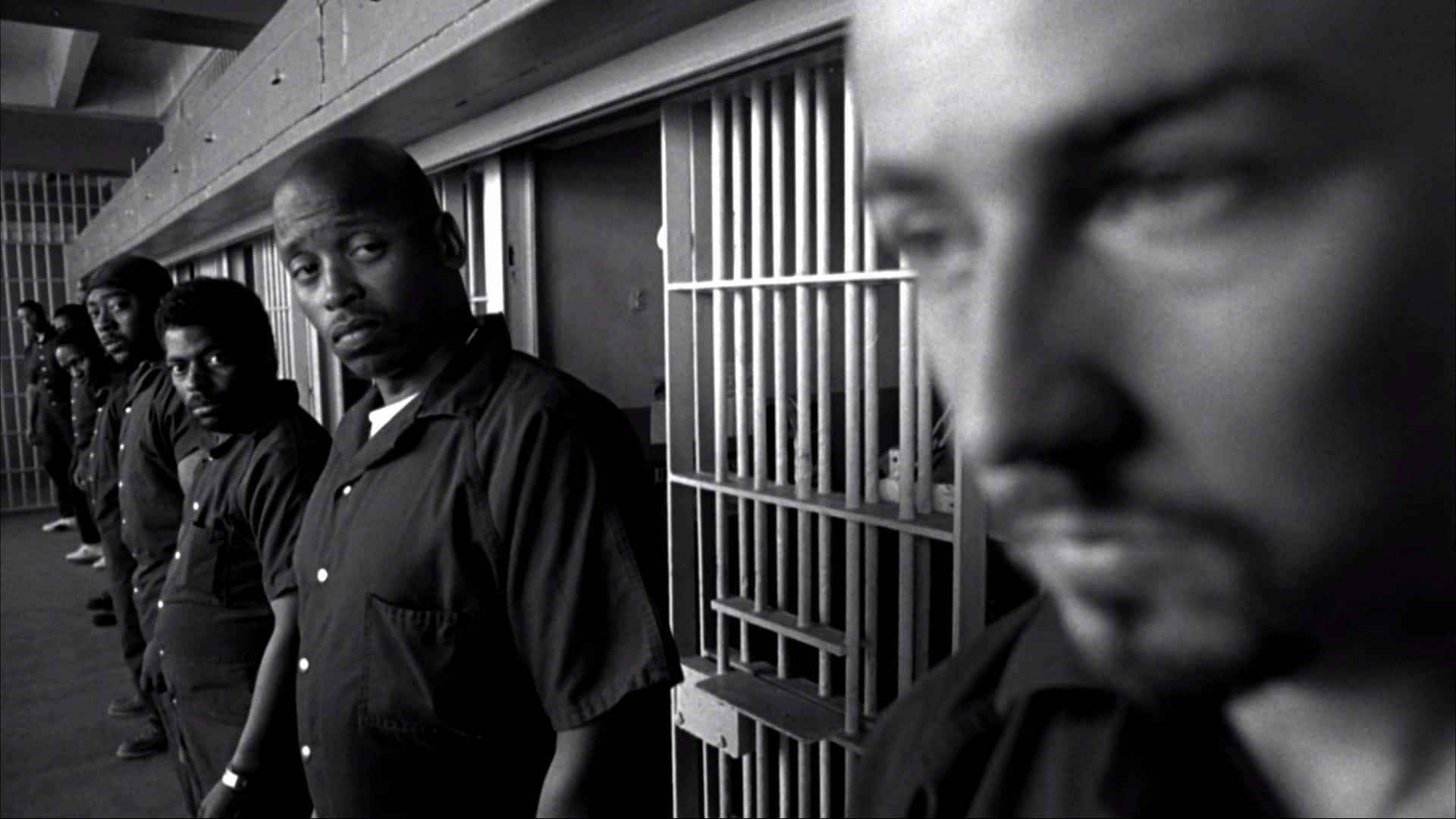

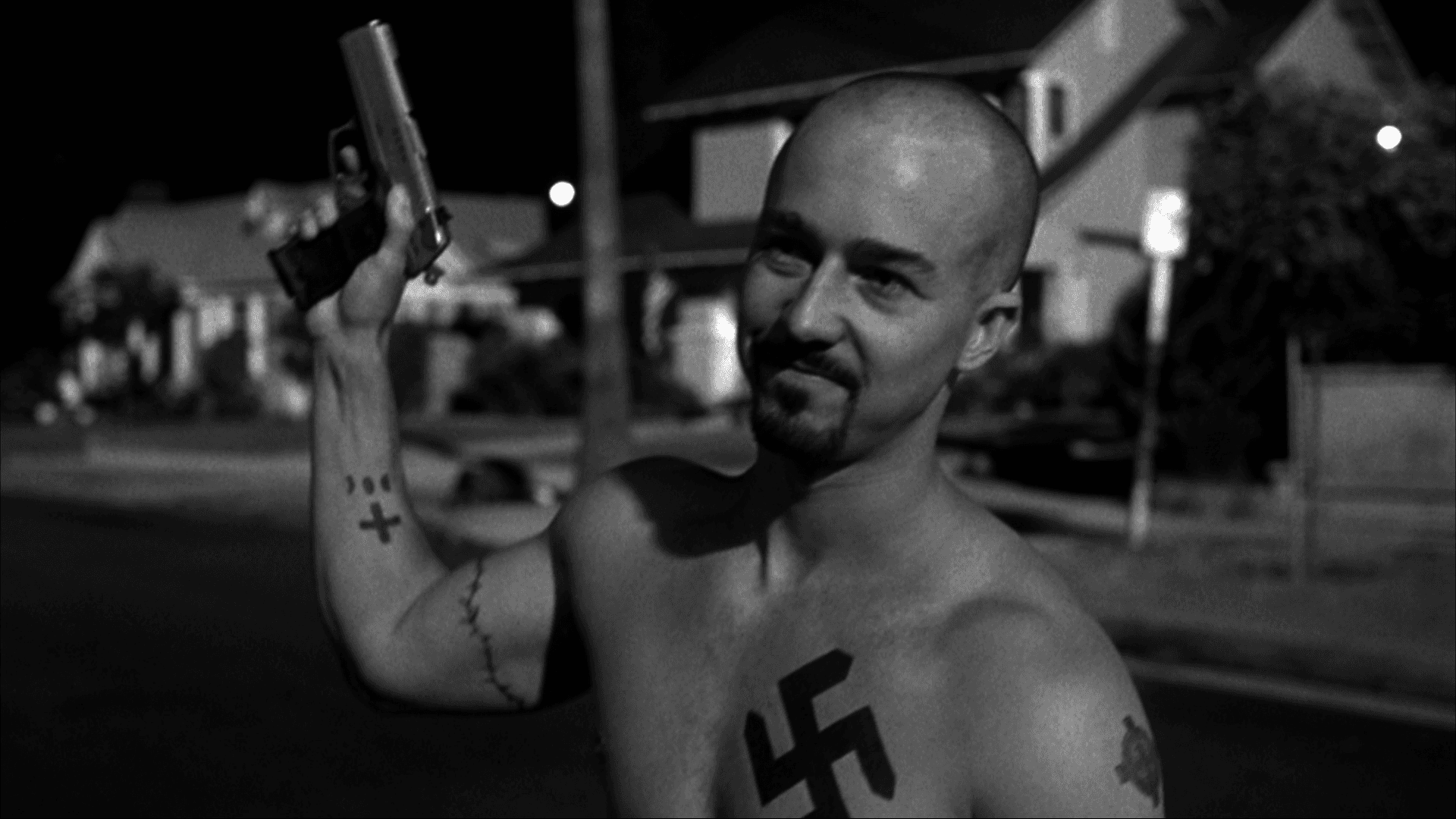
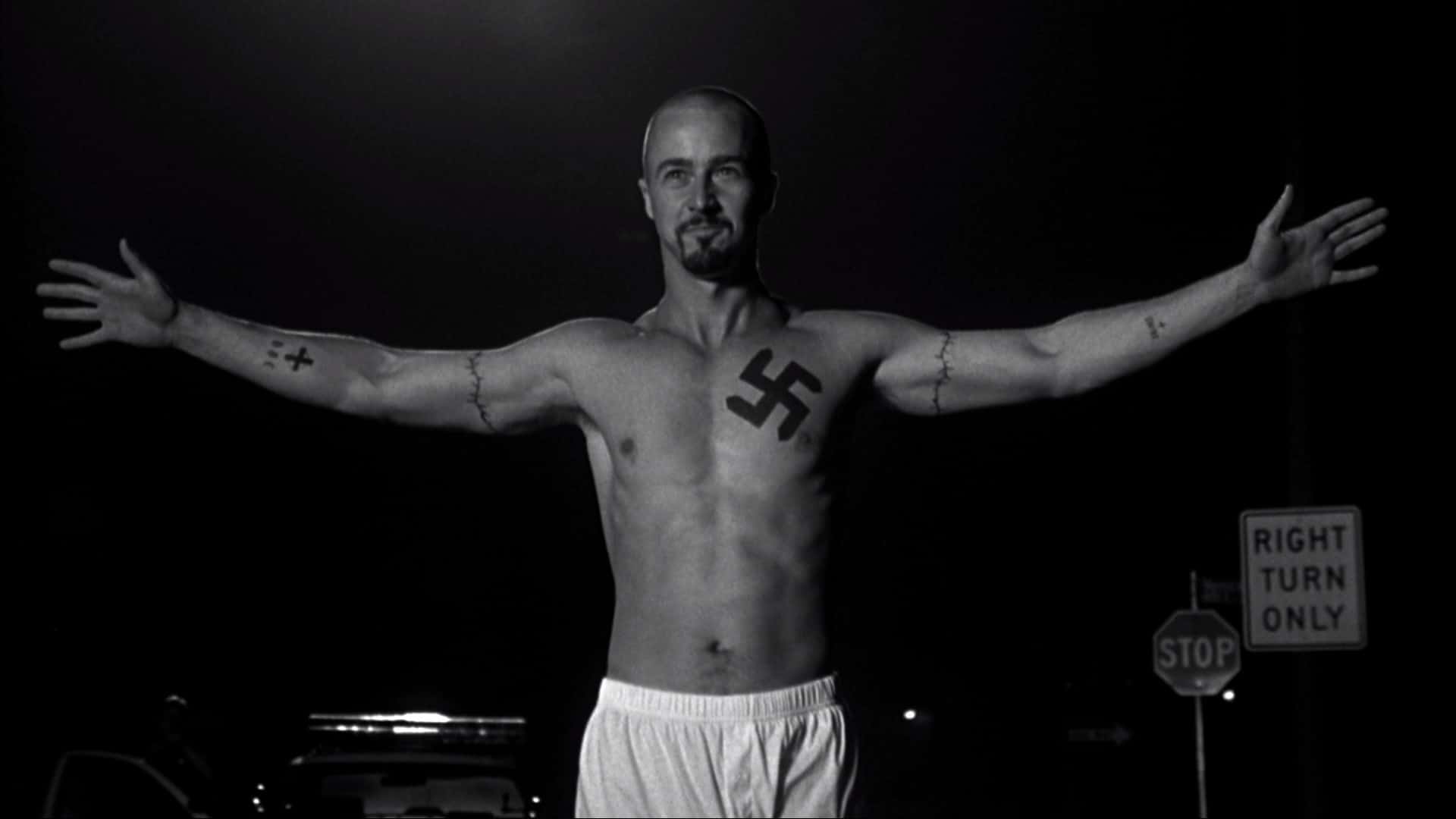

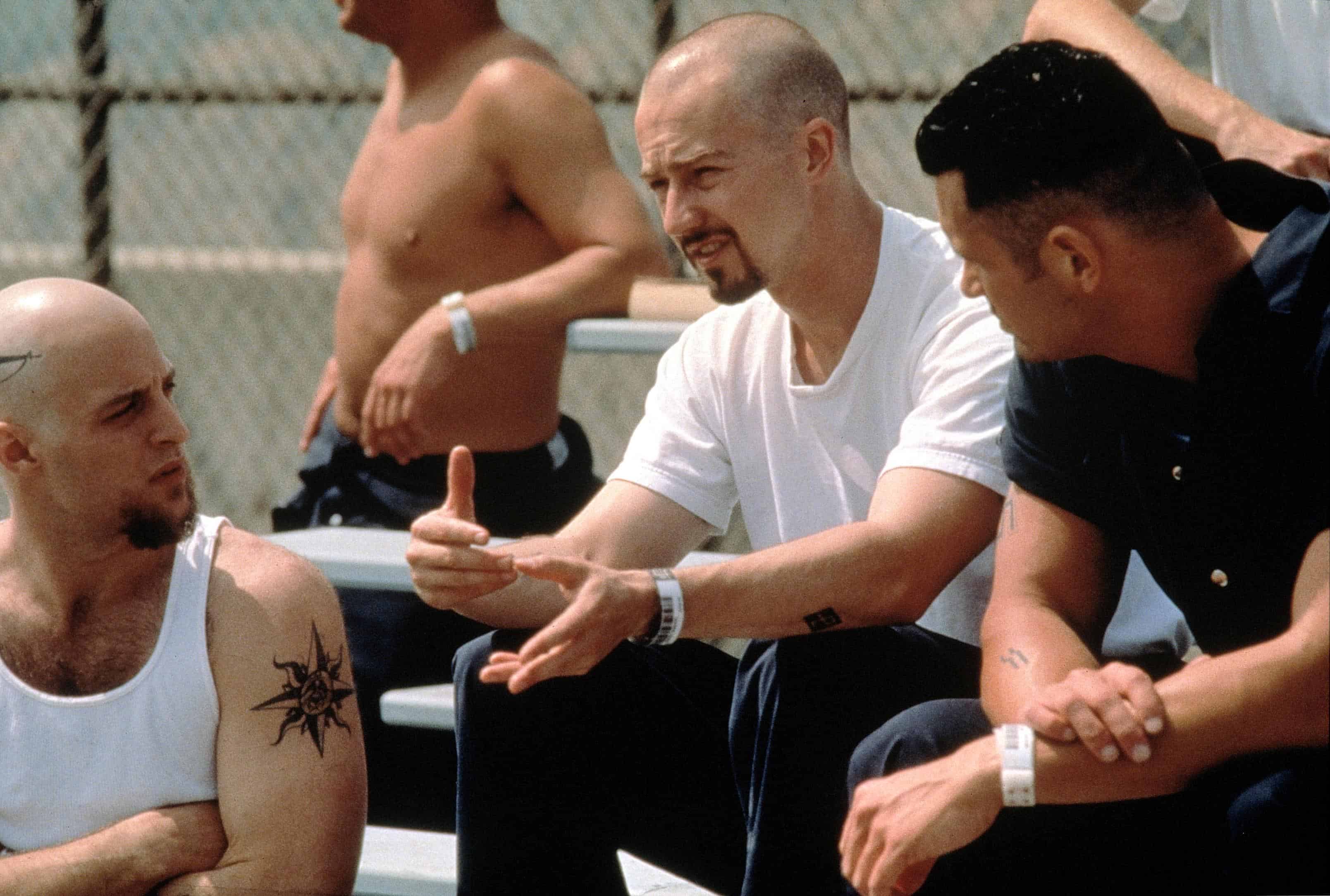

Featured Videos
Official Trailer
Comments
Loading comments...